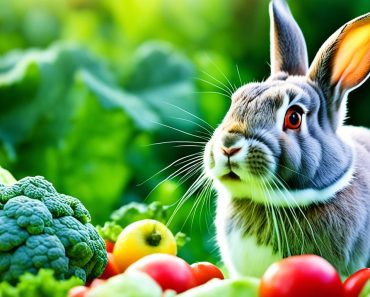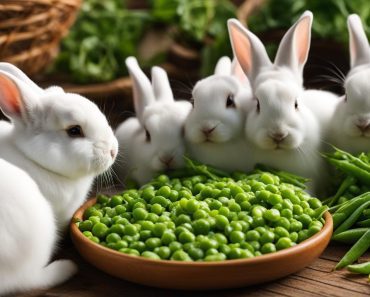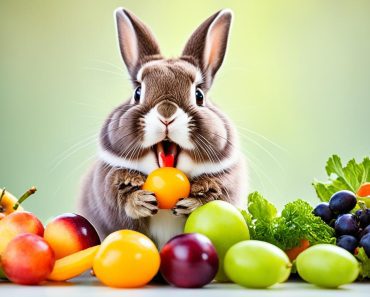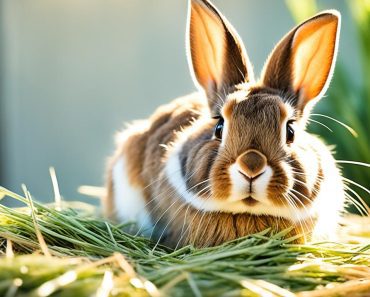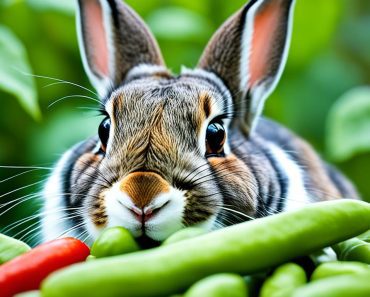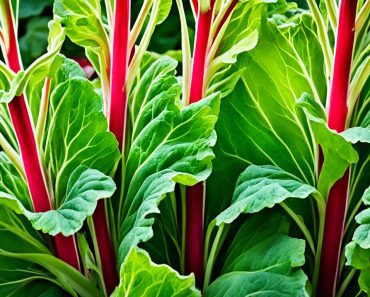Hello, rabbit owners! Are you wondering if it’s safe to include cauliflower in your fluffy friend’s diet? I’m here to answer that question for you. Let’s explore the nutritional value of cauliflower for rabbits and the quantity that can be safely consumed. After all, our furry companions deserve a healthy and balanced diet. So, let’s dig in!
Cauliflower is a versatile vegetable that many of us enjoy in our own meals. But can rabbits partake in this tasty treat? The good news is, yes, rabbits can eat cauliflower! Both the leaves and florets are safe for them to consume. Cauliflower is packed with essential vitamins and fiber, making it a nutritious addition to their diet.
However, as with any new food, it’s important to introduce cauliflower gradually and monitor your rabbit’s response. This will help prevent any digestive issues that can arise from sudden dietary changes. Remember, a balanced diet is key to keeping your rabbit healthy and happy.
Can Rabbits Eat Cauliflower? Yes, surprisingly, they can.
- Cauliflower, including both the leaves and florets, is safe for rabbits to eat.
- Introduce cauliflower gradually to prevent digestive issues.
- Offer one to two tablespoons of cauliflower per kilogram of body weight per week.
- Cauliflower provides vitamins A and K, as well as fiber, benefiting a rabbit’s overall health.
- Remember to include hay as the primary component of a rabbit’s diet, with fresh water always available.
Is Cauliflower Safe for Rabbits?
Yes, rabbits can safely eat all parts of a cauliflower. Both the leaves and florets are rich in vitamins A and K, as well as fiber. However, it’s important to provide cauliflower in moderation and monitor a rabbit’s response to ensure it doesn’t cause any digestive upset. Caution should be exercised when introducing new foods into a rabbit’s diet.
Rabbits are herbivores and have specific dietary needs. While cauliflower can be a nutritious addition to their diet, it’s crucial to offer a balanced variety of vegetables and ensure they receive all the essential nutrients. Rabbits require a diet that consists mainly of hay, which provides the necessary fiber for proper digestion. Fresh water should always be available as well.
When introducing cauliflower to a rabbit’s diet, it’s recommended to start with small quantities. Monitor their digestion and overall well-being for any signs of discomfort or digestive upset. If the rabbit tolerates cauliflower well, you can gradually increase the amount over time.
Remember, moderation is key. Feeding excessive amounts of cauliflower or any other vegetable can disrupt a rabbit’s digestive system and lead to health issues.
To better understand how cauliflower affects a rabbit’s health, it’s essential to keep an eye on their behavior, appetite, and stool consistency. If any changes occur, it’s best to consult a veterinarian for further guidance.
Overall, when fed in moderation, cauliflower can be a safe and nutritious addition to a rabbit’s diet. It’s important to prioritize a balanced and varied diet for their overall health and well-being.
The Edibility of Cauliflower Leaves
Rabbits can consume cauliflower leaves, and they can provide essential nutrients that contribute to a rabbit’s overall health. The leaves are often packed with vitamins and minerals that are beneficial for rabbits.
As with any new food, it’s important to introduce cauliflower leaves gradually into a rabbit’s diet. This allows their digestive system to adjust and minimizes the risk of any digestive upsets. Observing a rabbit’s digestion and overall well-being during this introduction period is essential to ensure that they tolerate the leaves well.
When offering cauliflower leaves to rabbits, it’s best to provide fresh, clean leaves that have been rinsed thoroughly. Avoid using leaves that may have been treated with any chemicals or pesticides, as these can be harmful to rabbits. Organic or home-grown cauliflower leaves are often a safer option.
To incorporate the cauliflower leaves into a rabbit’s diet, I recommend adding them to a mix of other rabbit-safe vegetables, ensuring a balanced and varied meal. This mix can include options such as lettuce, cilantro, carrots, and bell peppers. Remember to always rinse and prepare the vegetables properly before offering them to your furry friend.
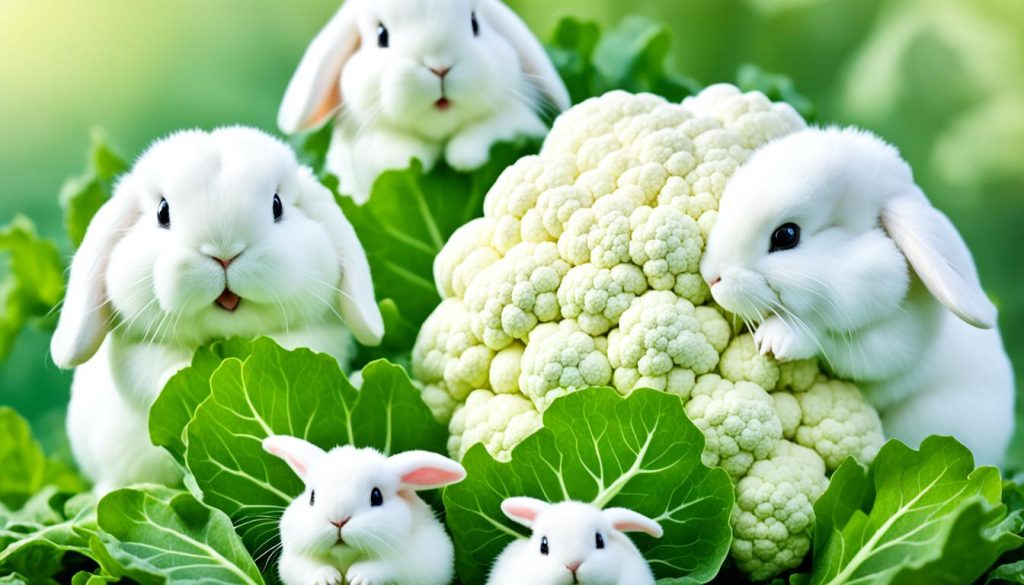
The nutritional value of cauliflower leaves is significant for rabbits. They are a good source of vitamins A and K, which support a rabbit’s immune system, vision, and overall well-being. Additionally, cauliflower leaves contain fiber, which aids in digestion and helps maintain a healthy digestive system in rabbits.
It’s important to note that while cauliflower leaves can be a nutritious addition to a rabbit’s diet, they should not replace the staples of their diet. Hay should always be the main component of a rabbit’s diet, providing them with essential fiber and promoting proper dental health. Fresh water should also be available to rabbits at all times for hydration.
Cauliflower leaves are suitable for rabbits and can offer nutritional benefits. Introduce them gradually into the diet, monitor your rabbit’s digestion and overall well-being, and ensure they are part of a balanced and varied meal plan. By taking these precautions and giving your rabbit the appropriate amounts, you can provide them with a healthy and enjoyable diet.
Moderation is Key
Feeding rabbits cauliflower in moderation is essential to prevent digestive upset. While cauliflower is safe for rabbits to eat, it’s important to introduce it gradually and monitor their response. Start by offering small quantities of cauliflower and observe how the rabbit’s digestion and overall well-being are affected. By gradually increasing the amount and keeping a close eye on their health, you can prevent any potential digestive issues caused by consuming too much cauliflower.
Rabbits have sensitive digestive systems, and sudden dietary changes can lead to gastrointestinal problems. Feeding cauliflower in moderation allows their digestive system to adjust gradually and reduces the risk of discomfort or upset stomach.
Remember, rabbits have different dietary needs and tolerance levels, so it’s important to pay attention to their individual reactions. What works for one rabbit may not work for another. Start with small amounts and watch for any signs of digestive upset, such as soft stool or decreased appetite.
By practicing moderation and being aware of your rabbit’s needs and tolerance, you can ensure that they enjoy the nutritional benefits of cauliflower without any adverse effects. As with any new food introduction, it’s always best to consult with a veterinarian familiar with rabbits’ dietary requirements for personalized guidance.
Quantity of Cauliflower for Rabbits
To ensure the well-being of your rabbits and prevent digestive issues, it is important to consider the quantity of cauliflower they consume. Moderation is key when it comes to feeding cauliflower to rabbits. Providing an appropriate amount of cauliflower will ensure that they receive a balanced and varied diet, without relying solely on cauliflower for their nutritional needs.
A reasonable guideline for feeding rabbits cauliflower is to offer about one to two tablespoons of cauliflower per two pounds of body weight per week. This amount allows for the inclusion of cauliflower in their diet without overwhelming their digestive system.
By following this recommendation, you can help prevent any potential digestive upset that may occur from excessive cauliflower consumption. Remember, it’s crucial to monitor your rabbits’ response and adjust the amount accordingly based on their individual needs.
The Importance of Moderation
Feeding your rabbits cauliflower in moderation is essential for their overall health and well-being. While cauliflower offers nutritional benefits, it is not meant to replace the staples of their diet.
“Moderation is key when it comes to feeding rabbits cauliflower. By providing a balanced diet that incorporates a variety of foods, including cauliflower in the recommended amounts, you can ensure your rabbits stay healthy and happy.” – Dr. Emily Johnson, Rabbit Specialist
Incorporating other essential elements such as hay, fresh water, and a variety of vegetables will help maintain a balanced and well-rounded diet for your rabbits.
Nutritional Benefits of Cauliflower for Rabbits
Cauliflower offers essential nutritional benefits for rabbits when incorporated into their diet in moderation. This versatile vegetable contains a variety of vitamins and minerals that contribute to a rabbit’s overall health and well-being.
One of the key nutrients found in cauliflower is vitamin C, which is vital for a rabbit’s immune system. It helps in the production of collagen, supports wound healing, and promotes the absorption of iron. Including cauliflower in a rabbit’s diet can help ensure they receive adequate vitamin C to maintain optimal health.
In addition to vitamin C, cauliflower also provides a good dose of vitamin K. This nutrient plays a crucial role in blood clotting and bone health. It helps maintain strong bones and promotes the overall well-being of rabbits.
Furthermore, cauliflower is rich in fiber, which is essential for a healthy digestive system. Fiber aids in proper digestion, prevents gastrointestinal issues, and supports regular bowel movements. Including cauliflower in a rabbit’s diet can help promote a healthy gut and prevent digestive problems.
Benefits of Cauliflower for Rabbit Health:
- Provides essential vitamins and minerals
- Boosts the immune system
- Promotes healthy bone development
- Aids in proper digestion
- Supports regular bowel movements
Incorporating cauliflower into a rabbit’s diet can offer these valuable benefits, but it’s crucial to feed it in moderation. Remember that hay should be the primary component of a rabbit’s diet, and fresh water should always be available. Cauliflower should be considered as a supplemental treat rather than a staple food.
Pairing Cauliflower with a Balanced Rabbit Diet
While incorporating cauliflower into a rabbit’s diet can be a healthy choice, it’s important to remember that it should not replace the staples of their diet.
Hay should always be the primary component of a rabbit’s daily intake. It provides essential fiber that aids in digestion and helps maintain a healthy digestive system. Considered a staple food for rabbits, hay should make up the majority of their diet to ensure they receive the necessary nutrients for optimal health.
Additionally, fresh water should always be readily available for rabbits. Hydration is vital for their overall well-being and supports proper bodily functions. Make sure to regularly check their water supply and refill as needed to ensure they stay hydrated throughout the day.
While cauliflower can be incorporated as a supplemental treat, it should not become a primary food source for rabbits. Moderation is key to prevent any digestive upset or imbalances in their diet. Limit the amount of cauliflower given to your rabbit and provide a variety of other vegetables to ensure a balanced and nutritious diet.
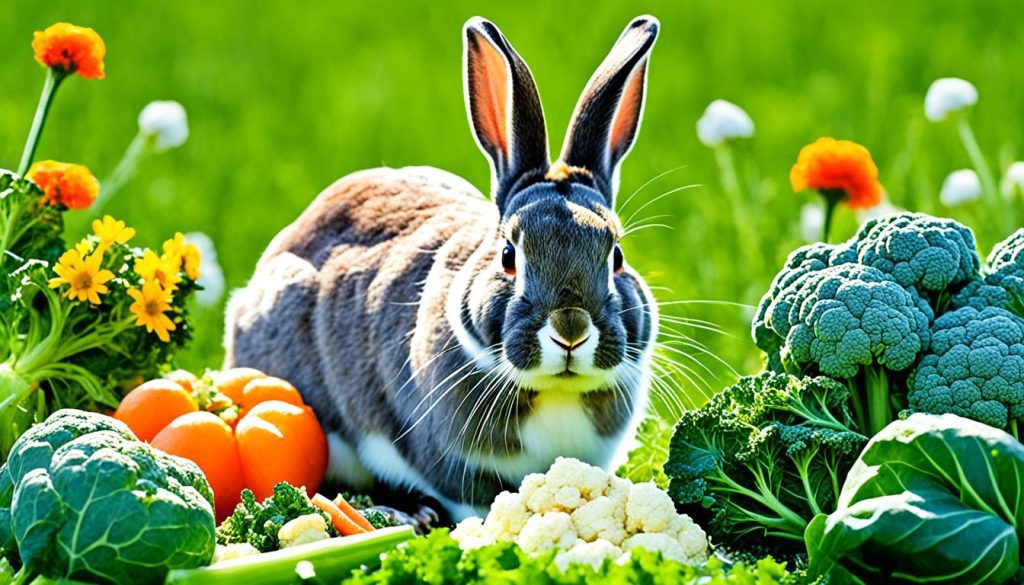
Conclusion
Rabbits can safely enjoy cauliflower as part of their diet. Cauliflower, including its leaves, is a nutritious vegetable that provides essential vitamins and fiber. However, it is crucial to feed cauliflower in moderation and introduce it gradually to prevent digestive issues.
While cauliflower can be a healthy addition to a rabbit’s diet, it should not replace the staples of their diet. Hay should remain the primary component, making up the majority of a rabbit’s daily intake. Fresh water should always be available for hydration.
By providing a balanced and varied diet, including appropriate amounts of cauliflower, rabbit owners can ensure their furry companions lead happy and healthy lives. Remember to monitor your rabbit’s response to cauliflower and consult with a veterinarian if you have any concerns or questions about their diet.

